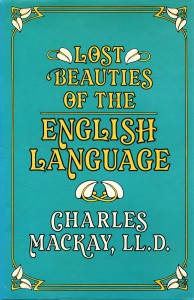Inspired by yesterday’s natterings, I stopped at the library and checked out River of Doubt (2006) by Candice Millard. Subtitled “Theodore Roosevelt’s Darkest Journey,” it’s about TR’s expedition into darkest Amazonia in 1913-14. As the book makes clear from the get-go, the journey nearly killed him. Even he-man action presidents have their limits, after all.
I didn’t know until today that Andrew Sachs died not long ago. There are many clips available of him in fine form as Manuel, such as this one or this one or this one.
I’ve had these glasses for a few years now. Bought them at a garage sale for (I think) a quarter each.
They were clearly some kind of promotional item from Coca-cola but also McDonald’s, because three of them have McDonald’s arches on the bottom. The interesting thing to me is that they’re precisely the same size and shape as a 12 oz. soft drink can.
While writing about a hotel today, I encountered something in the hotel biz known as a “spiritual menu.” The concept isn’t exactly new, but I’d never heard of it. The following is from the Christian Post in 2008.
“A hotel in Nashville will be the first known in the nation to remove the standard Holy Bible from its rooms and replace it with a ‘spiritual menu’ that includes other religious books… Hotel Preston, a boutique owned by Oregon-based Provenance Hotels, will require guests to call room service to order their religious book of choice…
“The religious book list includes the Book of Mormon, the Qur’an, the Torah, the Tao Te Ching, The Four Noble Truths of Buddhism, Bhagavad Gita (a Hindu text), books on Scientology, as well as the King James and New American Bible versions.” @#$%&! Scientology?
Hm. The Gideons can’t be too happy about being replaced. And the following lyric just doesn’t have the same ring: Rocky Raccoon/Checked into his room/Only to find a spiritual menu.









